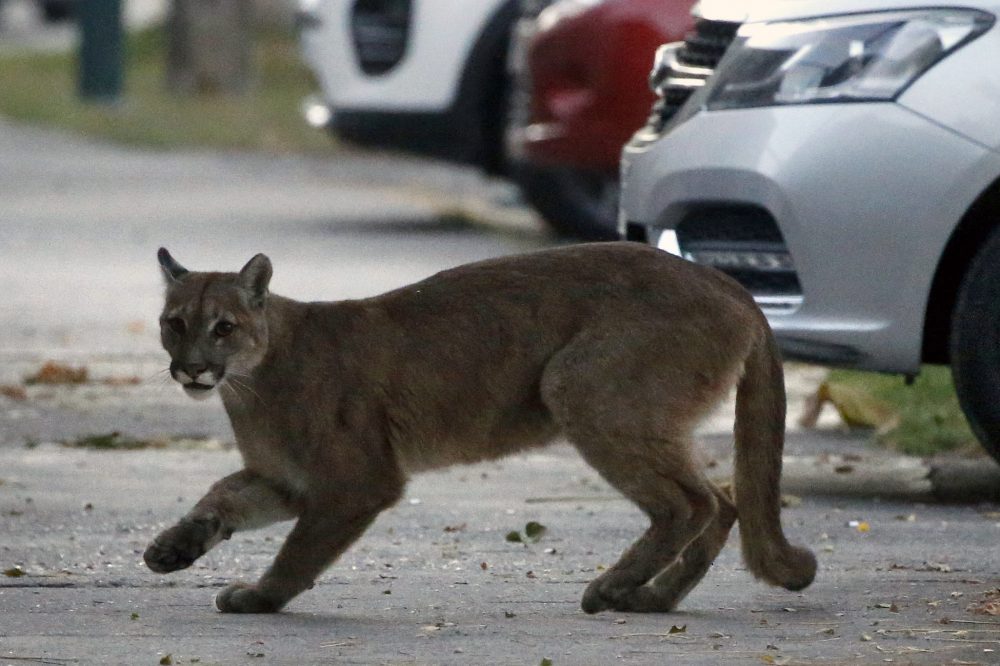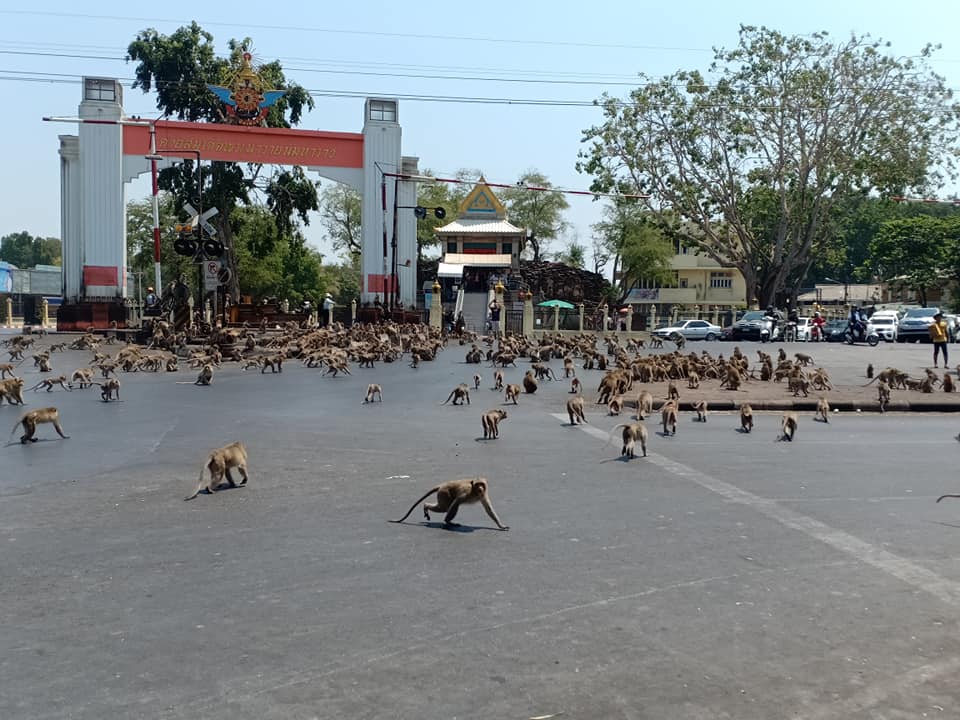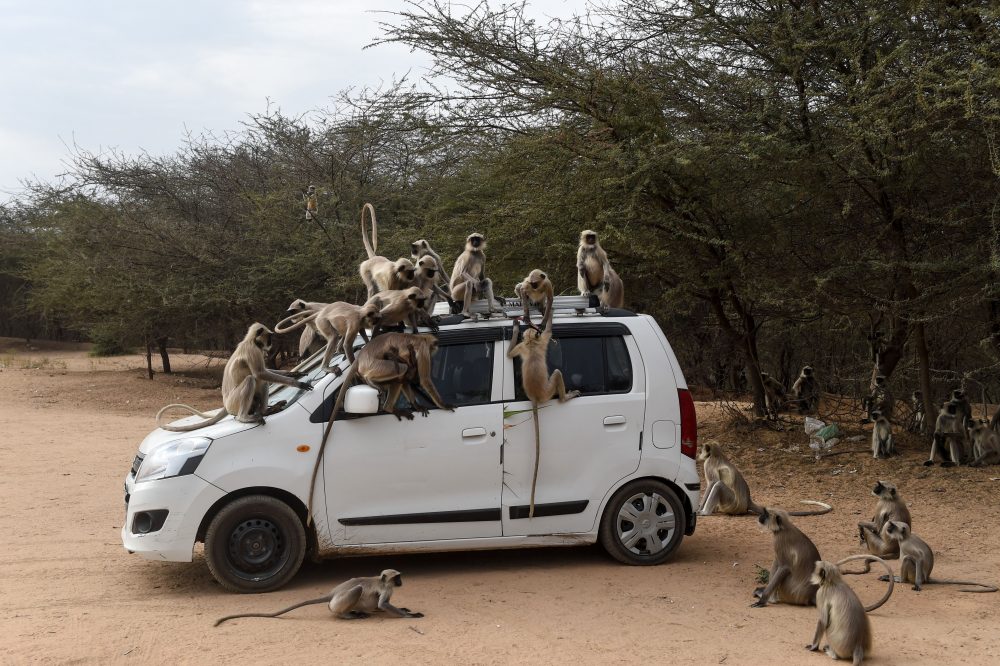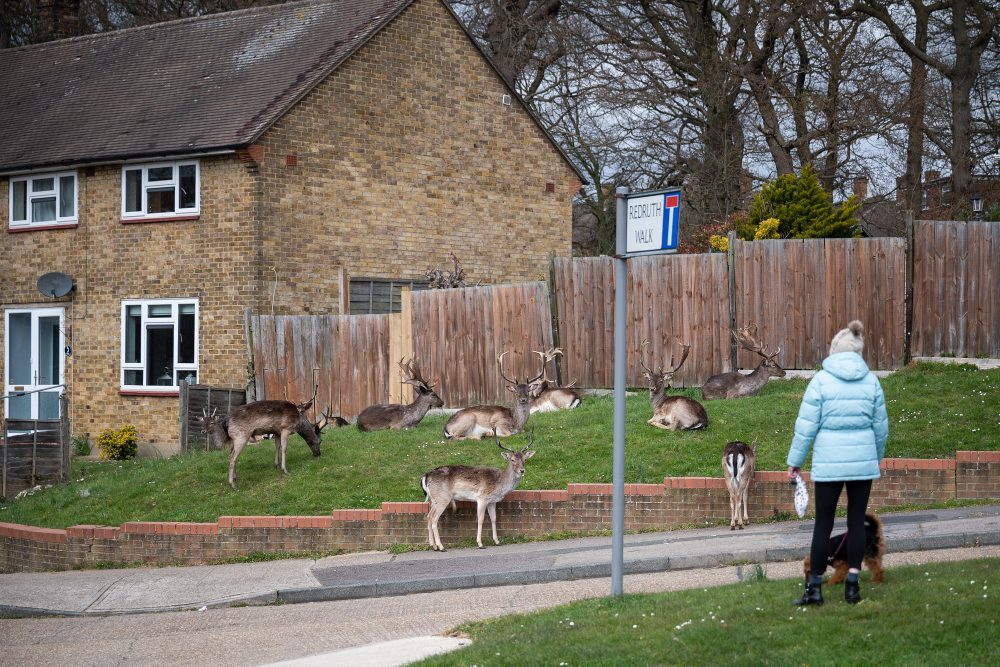Earth Day 2020 dawned on Wednesday in the middle of a bizarre moment for the planet, with humans in lockdown due to the coronavirus and many animals suddenly feeling emboldened to venture into now-deserted cities, towns and parks.

Humans have watched from afar as nature has come creeping out of the shadows over the past month amid global lockdowns to curb the spread of COVID-19, the disease caused by the virus.
Herds of animals have boldly wandered through rural towns. Scavengers have picked over city trash bins with no humans around to shoo them away. And in some places, vicious packs have fought over food and territory that they’ll eventually be forced to surrender when the lockdowns end.
Wild Kashmiri mountain goats have been running rampant throughout the Welsh town of Llandudno since last month, much to the delight of locals and social media users.
In Ashkelon, Israel, several red foxes were seen wandering the city streets on April 20.
Wildlife officials in Santiago, Chile, have been busy chasing down pumas in the city after multiple cases of the big cats roaming freely around the area. The pumas were tranquillized and relocated each time they showed up.
A dramatic scene played out in Thailand on March 11, when rival gangs of macaques started fighting amid the typically tourist-filled stress of Lopburi. Video of the battle spread rapidly across the internet.
Some of the wildest scenes have emerged out of India, where the country’s diverse wildlife has been quick to fill the void left by 1.3 billion people suddenly going into lockdown.
In Ajmer, a city in northwestern India, several dogs were spotted hunting a wild boar on the city streets during the lockdown on March 26. They eventually herded the boar into a sewer trough.
Hungry monkeys clambered all over a car in the village of Ode, outside Ahmedabad, in hopes of getting a few morsels of food during the lockdown in late March.
A herd of Fallow deer casually wandered into a neighbourhood in Romford, England on April 2, where they were spotted grazing — and simply hanging out — on one homeowner’s yard.
Wild deer have also been making themselves feel at home in some of Japan’s typically crowded areas, which now sit virtually empty amid the pandemic.
Wild turkeys have also been spotted roaming through the suburbs in several North American cities, including Baton Rouge, La.
It’s unclear exactly when the coronavirus threat will pass, but those turkeys might not want to hang around when Thanksgiving rolls around later this year.

Get daily National news
—
Questions about COVID-19? Here are some things you need to know:
Health officials caution against all international travel. Returning travellers are legally obligated to self-isolate for 14 days, beginning March 26, in case they develop symptoms and to prevent spreading the virus to others. Some provinces and territories have also implemented additional recommendations or enforcement measures to ensure those returning to the area self-isolate.
Symptoms can include fever, cough and difficulty breathing — very similar to a cold or flu. Some people can develop a more severe illness. People most at risk of this include older adults and people with severe chronic medical conditions like heart, lung or kidney disease. If you develop symptoms, contact public health authorities.
To prevent the virus from spreading, experts recommend frequent handwashing and coughing into your sleeve. They also recommend minimizing contact with others, staying home as much as possible and maintaining a distance of two metres from other people if you go out.
For full COVID-19 coverage from Global News, click here.
— With files from Reuters and the Associated Press













Comments
Want to discuss? Please read our Commenting Policy first.